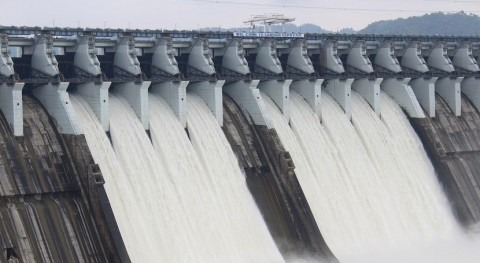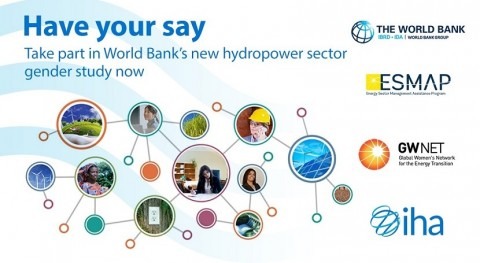Africa’s fourth largest river basin, the Zambezi, offers vast hydropower resources that are key to supporting sustainable economic development and prosperity across southern Africa.
The river basin’s technical potential of nearly 15,000 megawatts in installed hydropower capacity could prove sufficient to meet the estimated combined electricity demand of Angola, Botswana, Malawi, Mozambique, Namibia, Tanzania, Zambia and Zimbabwe – known as the Riparian States.
Using the Hydropower Sustainability Assessment Protocol (HSAP) as a guiding reference, the International Hydropower Association (IHA) and the World Bank partnered with government agencies and local organisations to assist the Riparian States in developing and utilising the basin’s hydropower resource in a sustainable and responsible way.
The 2018 assistance programme consisted of a series of assisted self-assessments using the HSAP across the river basin followed by an ‘operation stage’ official assessment of the existing Cahora Bassa hydroelectric scheme in Mozambique.
Participants from a range of operators and water resources managers, including Hidroeléctrica de Cahora Bassa, the Zambezi River Authority and ZESCO, learned how to apply the principles enshrined within the HSAP to their own hydropower projects.

The Cahora Bassa hydroelectric scheme in Mozambique
João Costa, Senior Sustainability Specialist at IHA, said: “The application of the Hydropower Sustainability Assessment Protocol in the Zambezi River Basin provided regional stakeholders with the necessary information to effectively promote, manage and deliver sustainable hydropower and ensure the long-term viability of project benefits.”
Following the completion of the programme, the World Bank published a report titled ‘Application of the Hydropower Sustainability Assessment Protocol in the Zambezi River Basin’ in January 2019. The report provides an overview of the capacity building programme and summarises the results and lessons learned.
In its conclusion, the report notes: “The [Hydropower Sustainability Assessment] Protocol is a useful mechanism to foster cooperation and knowledge sharing among hydropower developers and operators, enhance transparency in the dissemination of information on sustainability performance and promote the sustainability of projects through assessments.”
Kimberly Lyon, Water Resources Management Analyst at the World Bank and co-author of the report, commented: “This work demonstrates the usefulness of the Hydropower Sustainability Assessment Protocol in a range of customised applications and shows that it has value for our clients seeking to elevate the way hydropower projects are developed as part of a process of continuous improvement.”
The Hydropower Sustainability Assessment Protocol was launched in 2010 and offers a framework for assessing hydropower projects against a comprehensive range of social, environmental, technical and economic criteria.
The HSAP is one of three Hydropower Sustainability Assessment Tools, along with the Hydropower Sustainability Guidelines on Good International Industry Practice and the Hydropower Sustainability ESG Gap Analysis Tool, available to the hydropower sector to promote sustainability and measure performance in project planning, development and implementation.



















